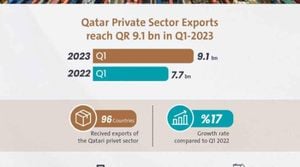On February 28, C8 will officially cease operations, marking the end of its broadcasts on the French television network. The decision, made by the Conseil d'État, has ignited significant backlash led by popular talk-show host Cyril Hanouna, who has rallied his colleagues and supporters against what he perceives as censorship.
Géraldine Maillet, one of the prominent figures on Hanouna's show, Touche pas à mon poste, articulated her frustration openly during recent discussions on the air, declaring, "Today, freedom of expression is something right-wing; it’s no longer something leftist.” Her staunch remarks echoed Hanouna's sentiments, where he added, "Exactly, I quite agree with you... I have never heard someone on the right say they want to ban Libération, they want to ban L'Humanité." This viewpoint reflects their shared belief about the current socio-political climate impacting media freedom.
The closure of C8, alongside NRJ12, has been characterized by both the public and industry insiders as abrupt and unjust. Following the announcement, Hanouna took to his platforms, underscoring the distress felt not only by the visible personalities on screen but also by the behind-the-scenes workers, numbering around 400. "It's going to be complicated to continue with everyone... I feel for my team, especially for those who are not as visible but contribute immensely to what we do," he expressed during his radio broadcast on Europe 1.
French President Emmanuel Macron has publicly acknowledged this situation, noting his sympathies for those workers affected by the closure. While asserting the decision was not politically motivated, Macron stated, "I hope they can, within the framework of the new authorizations granted to them on the broadcast spectrum, find another opportunity." This view prompted sharp rebukes from Hanouna, who retorted, "Emmanuel Macron says nonsense. He thinks they can support 400 people with a budget of four euros? It’s impossible. It’s either ignorance of the media or just madness.”
Adding to the turmoil, pictures emerged of discussions from members of Arcom supposedly plotting Hanouna's ousting, which only intensified the narrative of targeted aggression against one of France's most recognized television hosts. "We have the images from the cameras... It’s going to shake things up," Hanouna assured his audience, indicating potential revelations about internal maneuvers within media oversight organizations.
With the dismantling of C8 and the arrival of new channels such as T18 and OFTV, which aim to promote dialogue over conflict, Hanouna’s future remains uncertain but filled with speculation. He hinted at potential new ventures within M6 following the fallout from Stéphane Plaza’s recent legal troubles, describing how fellow networks might provide refuge.
Despite the turbulence, Hanouna vowed to continue his career earnestly. "It pains me to say it, but you may very well see more of me than ever! I have more proposals than before. My goal is clear—to keep my team together as we transition to whatever is next,” he declared, showcasing both optimism and determination to adapt.
Moving forward, as the date of the closure looms closer, anticipation builds around Hanouna’s next speech where he will likely announce future plans. He emphasized the importance of maintaining the essence of his show, ensuring it reflects the values and format familiar to his audience, regardless of the platform change.
While the media environment shifts with these closures, the weight of C8’s legacy continues to resonate with audiences drawn to its engaging, often contentious style. The outcomes of this situation will undoubtedly impact not just the hosts and producers but also the viewers who crave the kinds of dialogues and controversies C8 provided.
Hanouna’s outspoken defense of media freedom highlights not only his role as a central figure within this narrative but also reflects broader societal tensions surrounding expression and censorship, raising questions about the future of free discourse on French television.



